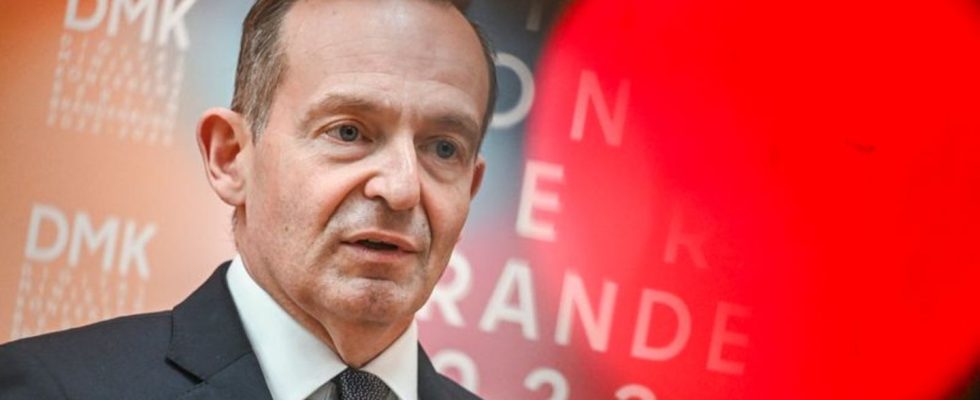Internet & AI
Wissing at the Digital Ministers Conference: Promote the use of AI
The Federal Minister for Digital and Transport: Volker Wissing. photo
© Jens Kalaene/dpa
Artificial intelligence, cybersecurity, digital offices – at their first digital ministerial conference, the countries promise to improve their cooperation.
When it comes to AI patents, Germany is number two in the world after the USA and ahead of China and Japan, said Wissing at the first digital ministerial conference in Potsdam. This opportunity should not be wasted. “Without artificial intelligence, no economy will be able to remain competitive,” said Wissing. Germany should have the technology in its own hands, said the minister. From his point of view, it is therefore important to approach AI with openness and to promote its widespread use. The countries founded the Digital Ministers’ Conference to strengthen their cooperation in this area.
The federal government wants to replace more administrative procedures with uniform digital procedures, but the Online Access Act (OZG 2.0) has met with criticism, especially from Union-led states. Minister Wissing said that a quick solution was now needed to reform this law, which had failed in the Federal Council. Countries should not block it permanently. The Online Access Act applies to federal administrations, but it should also extend to federal states and municipalities. The aim is also to prevent administrations from developing software to solve the same problem multiple times.
“Too often small states and parochial politics”
The industry association Bitkom criticized in a statement that digitalization in Germany is too often dominated by small states and parochial politics. A patchwork of different regulations, for example in administration and data protection, makes things unnecessarily difficult for consumers and companies and creates costs without benefits. The association therefore welcomes the establishment of a permanent digital ministerial conference, which should contribute to the nationwide acceleration and harmonization of digital policy. The Berlin State Secretary for Digitalization and Administrative Modernization, Martina Klement, also said: “We have to make sure that not everyone cooks their own soup.”
A digital ranking by the industry association Bitkom revealed differences between the 16 federal states. Hamburg took the lead, ahead of Berlin and Bavaria. The lowest index values were achieved in Saxony-Anhalt and Thuringia. Brandenburg ended up in eleventh place. Four areas were compared: “digital economy”, “digital infrastructure”, “governance & digital administration” and “digital society”. Among other things, the 5G expansion, fiber optic supply and the charging infrastructure for electric cars were examined, but also the number of compulsory IT lessons in schools, the use of digital government services and the population’s attitude to digitalization.

